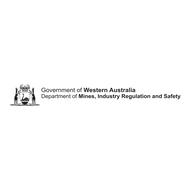DMP team tells community representatives that robust regulation will govern shale and tight gas exploration.
| Date: | Friday, 05 September 2014 |
|---|
DMP team tells community representatives that robust regulation will govern shale and tight gas exploration.
Frank and open discussions marked a visit to Carnarvon last week by a team from the Department of Mines and Petroleum.
Carnarvon Shire councillors and staff, and members of a local water advisory group were briefed on how DMP is regulating the emerging shale and tight gas industry in Western Australia.
The visit was in response to requests for more information on shale and tight gas and the associated process of hydraulic fracturing.
“We made it clear that we were not in Carnarvon to promote the interests of mining companies,” DMP Petroleum Tenure and Land Access General Manager Beverley Bower said this week.
“We were there to encourage a greater understanding of what’s involved in exploration for shale and tight gas and I’m pleased to say that our discussions were open, frank and rewarding.”
DMP is conducting a continuing program of community engagement to present people with factual information on shale and tight gas and hydraulic fracturing.
“The department recognises there are concerns about potential risks to water resources and environmental values throughout WA,” Ms Bower said.
“That’s why we’re out there talking to communities.”
Ms Bower said that people in Carnarvon had been advised that the department was strengthening its regulations to make sure industry implemented best practices.
The department’s Executive Director of Petroleum Jeff Haworth said that when reforms to resource management regulations become law, hopefully before the end of the year, WA’s regulations will be some of the toughest in the world.
Mr Haworth said it was important for people to know that Western Australia’s regulatory framework for hydraulic fracturing was continually being improved in response to new scientific, technological and social considerations.
“The industry in WA is still in the early stages of exploration and any significant commercial production is at least five to 10 years away,” he said.
“We’re looking at the very early stages of exploration and evaluation and we’re in the box seat to learn from other jurisdictions.”
Mr Haworth emphasised that the DMP approach to regulating the emerging industry was a whole-of-government approach.
“DMP is working closely with other agencies responsible for upholding the State’s values to protect public health, the environment, water resources and equitable land use,” he said.
These agencies include the Departments of Agriculture and Food, Environment Regulation, Heath, Parks and Wildlife, State Development and Water, and the Office of the Environmental Protection Authority (OEPA).
“We are making it clear to communities that all companies are required by law to go through stringent approvals processes before they can undertake hydraulic fracturing activities,” he said.
“People also need to know that before approval is granted, companies must submit a list of all chemicals that may go into a well.
“If they don’t, they can’t drill – it’s as simple as that.”
Mr Haworth added that all chemicals intended to be used in drilling programs involving hydraulic fracturing were published on the department’s website.
“Industry is now working with some of the most demanding regulations in Australia and possibly internationally – and they are going to become tougher,” he said.

